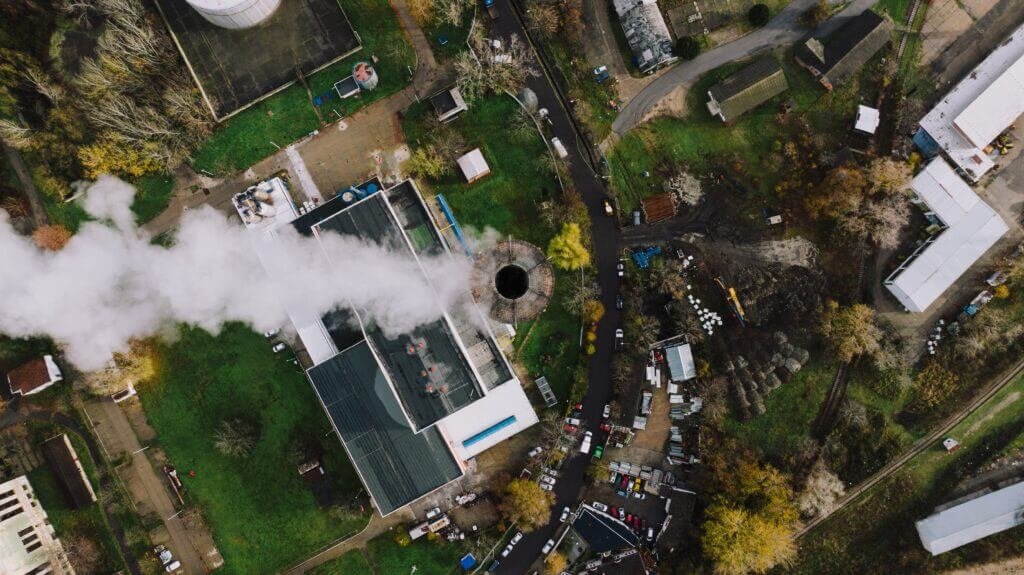Imagine having your own little oasis in the heart of the bustling city – a space where you can escape the concrete jungle and reconnect with nature. Urban gardening offers just that, and so much more. Not only does it provide a serene retreat, but it also brings a plethora of benefits to the environment, your health, and the community. From reducing air pollution to promoting physical activity, discover the incredible advantages that urban gardening can bring into your life and the world around you.

Environmentally Friendly
Urban gardening is an environmentally friendly practice that offers numerous benefits. One of the key advantages is its ability to reduce carbon footprint. By growing your own food in an urban setting, you can decrease the need for long-distance transportation and the associated greenhouse gas emissions. Additionally, urban gardens contribute to improving air quality by absorbing carbon dioxide and releasing oxygen through photosynthesis. This helps to mitigate the impact of air pollution and create a healthier environment for both humans and wildlife.
Another important benefit of urban gardening is its ability to conserve water resources. Traditional agriculture often requires large amounts of water for irrigation, but urban gardens can utilize water-saving techniques like drip irrigation or rainwater harvesting. By adopting these practices, you can minimize water waste and promote more efficient water use. Moreover, urban gardens can also help to reduce stormwater runoff, reducing the strain on local water systems and minimizing the risk of flooding.
Furthermore, urban gardening promotes biodiversity within cities. By cultivating a variety of plants, you can attract pollinators such as bees and butterflies, which are crucial for ecosystem health. Urban gardens act as green oases in concrete jungles, providing habitats for birds, insects, and other wildlife. This biodiversity not only contributes to the overall health of urban ecosystems but also adds beauty and vibrancy to urban spaces.
Health and Well-being
Engaging in urban gardening has significant positive impacts on health and well-being. Firstly, it provides access to fresh and nutritious food. Growing your own fruits, vegetables, and herbs ensures that you have a ready supply of wholesome produce that is free from harmful chemicals. This promotes a healthier diet and helps to combat issues like food insecurity and poor nutrition.
Additionally, urban gardening encourages physical activity. Tending to your garden, planting seeds, weeding, and harvesting require physical effort, which helps to promote fitness and reduce sedentary lifestyles. It provides an opportunity to get outside, breathe in fresh air, and engage in physical exertion that is both enjoyable and beneficial for your overall health.
Moreover, urban gardening has a positive impact on mental health. Spending time in nature has been proven to reduce stress and anxiety, and urban gardens offer a convenient and accessible way to connect with the natural world. The act of gardening itself can be therapeutic, providing a sense of accomplishment, peace, and relaxation. It offers a break from the fast-paced urban life, allowing you to unwind and find solace in the tranquility and beauty of your garden.

Community Engagement
Urban gardening plays a crucial role in fostering social connections within communities. It provides a platform for individuals to come together, share knowledge, and work towards a common goal. Community gardens, for example, often serve as meeting places where people can collaborate, exchange gardening tips, and support each other in their gardening endeavors. This sense of camaraderie and shared purpose strengthens social bonds and builds a sense of community.
In addition to social connections, urban gardening promotes teamwork and collaboration. When people come together to work on a shared garden space, they learn to cooperate, communicate, and problem-solve as a team. This shared experience cultivates valuable skills that extend beyond gardening and can be applied to other aspects of life.
Furthermore, urban gardening creates a sense of pride and ownership within communities. Tending to a garden not only beautifies the neighborhood but also instills a sense of responsibility and attachment. When individuals take an active role in cultivating their surroundings, they develop a sense of ownership and take pride in the positive impact they are making.
Lastly, urban gardening enhances community aesthetics by transforming vacant lots, rooftops, and other underutilized spaces into flourishing green areas. This not only improves the visual appeal of the community but also creates a more inviting and vibrant environment for residents and visitors alike.
Food Security
Urban gardening contributes to food security in several ways. Firstly, it reduces dependence on external food sources. By growing your own food, you become less reliant on supermarkets and the industrial food system. This reduces the vulnerability of communities to disruptions in the supply chain and ensures a more reliable food source during times of crisis or scarcity.
Moreover, urban gardening provides a reliable food supply. By having a garden at your disposal, you can have a constant source of fresh produce, reducing the risk of food shortages or price increases. This is particularly important for low-income communities that may struggle with access to affordable and nutritious food options.
Additionally, urban gardening enhances food resiliency. It can adapt to the local environment, climate, and specific food preferences of the community. By cultivating a diverse range of crops, urban gardens can withstand fluctuations in weather conditions, diseases, or pest outbreaks. This resilience ensures a steady supply of food and reduces the vulnerability of communities to food insecurity.

Economic Benefits
Engaging in urban gardening can have significant economic benefits for individuals, households, and communities. One of the most immediate financial advantages is saving money on grocery bills. By growing your own food, you can slash your grocery expenses, especially on items like herbs, fruits, and vegetables that can be costly to buy. This can provide substantial savings over time, allowing you to allocate your resources towards other priorities.
Furthermore, urban gardening creates opportunities for entrepreneurship. Individuals with a passion for gardening can turn their hobby into a business by selling their homegrown produce, plants, or gardening services. This allows for additional income generation and the potential for small-scale entrepreneurship within communities.
Moreover, urban gardening enhances property value. A well-maintained garden can improve the aesthetics of your home and neighborhood, making it more desirable to potential buyers. Properties with gardens are often seen as more attractive and may command higher market prices, offering a valuable return on investment for homeowners.
Additionally, urban gardening reduces the strain on local food systems. By cultivating your own food, you decrease the demand for mass-produced, commercially farmed products. This can help to alleviate pressure on agricultural resources and infrastructure, ensuring a more sustainable and equitable distribution of food within communities.
Education
Urban gardening serves as a powerful educational tool, teaching important life skills to individuals of all ages. Firstly, it promotes environmental awareness by connecting people with the natural world and highlighting the importance of conserving and protecting the environment. Through gardening, individuals learn about various ecological processes, plant life cycles, and the interconnectedness of all living beings.
Moreover, urban gardening encourages sustainable practices. By adopting organic gardening methods, composting, and water-saving techniques, individuals develop a deeper understanding of the importance of sustainable agriculture and responsible resource management. These practices can then be applied to other aspects of life, helping to promote a more environmentally conscious and sustainable lifestyle.
Urban gardens also act as living laboratories for students. Schools and educational institutions can incorporate gardening into their curriculum, allowing students to apply their theoretical knowledge in a practical and hands-on setting. This experiential learning approach nurtures curiosity, creativity, and critical thinking skills, enhancing the overall educational experience.
Furthermore, urban gardening promotes food literacy. Through planting, cultivating, and harvesting their own food, children and adults alike develop a better understanding of where their food comes from and how it is produced. This knowledge empowers individuals to make informed food choices and can contribute to a healthier and more sustainable relationship with food.
Food Waste Reduction
Urban gardening plays a crucial role in minimizing food waste. By composting organic materials such as kitchen scraps, garden waste, and fallen leaves, you can create nutrient-rich compost that nourishes your plants. Composting not only reduces the amount of waste that goes to the landfill but also transforms it into a valuable resource for your garden, closing the loop and creating a circular economy.
Additionally, urban gardens allow for the utilization of homegrown produce. When you grow your own food, you have better control over the quantity and quality of what you harvest. This reduces the likelihood of excess food that goes to waste. By harvesting only what you need, you can minimize food waste and ensure that every bit of your homegrown produce is put to good use.
Moreover, urban gardening helps to reduce packaging waste. When you grow your own food, you can enjoy fresh produce without the need for excessive packaging, thereby reducing the amount of plastic and other packaging materials that end up in landfills or polluting the environment. This contributes to a more sustainable and waste-free approach to food consumption.
By actively participating in urban gardening and minimizing food waste, individuals contribute to a circular economy where resources are used efficiently, waste is minimized, and the environmental impact is significantly reduced.
Green Spaces
Urban gardening enhances urban spaces by increasing greenery in concrete-dominated settings. By transforming vacant lots, rooftops, balconies, and other underutilized areas into thriving gardens, urban dwellers can create oases of green in the heart of the city. These green spaces not only beautify the surroundings but also provide a myriad of benefits.
The presence of greenery improves aesthetics, making cities more visually appealing and enjoyable for residents and visitors alike. The sight of plants, flowers, and trees provides a soothing and refreshing contrast to the bustling cityscape, creating a more balanced and inviting atmosphere.
Moreover, urban gardens help to mitigate the urban heat island effect. The presence of vegetation helps to lower temperatures by providing shade, reducing energy consumption for cooling, and promoting evapotranspiration. This leads to a more comfortable urban environment, minimizing the negative health effects associated with extreme heat.
Furthermore, green spaces enhance overall urban livability. By creating pockets of nature within cities, urban gardens provide spaces for relaxation, recreation, and socialization. They offer a place to escape the stresses of urban life, unwind, and connect with nature. These green sanctuaries contribute to the mental, physical, and emotional well-being of urban dwellers, creating a more livable and sustainable urban environment.
Hobby and Recreation
Engaging in urban gardening offers a rewarding and enjoyable pastime for individuals of all ages. Gardening allows you to connect with nature, nurture living beings, and witness the beauty of growth and transformation firsthand. It offers a sense of fulfillment and satisfaction as you plant seeds, tend to your garden, and watch as your efforts bear fruit.
Moreover, urban gardening provides a therapeutic escape from the demands of urban life. Spending time in nature has been shown to reduce stress, anxiety, and depression. When you immerse yourself in the process of gardening, you engage all your senses, from the scent of flowers to the touch of soil, creating a mindful and calming experience that promotes overall well-being.
Furthermore, gardening allows for creative expression. Your garden becomes your canvas, where you can experiment with different arrangements, colors, and textures. This creative outlet fosters imagination and nurtures a sense of artistic accomplishment.
Moreover, urban gardening nurtures a passion for gardening that can last a lifetime. It provides an opportunity to learn from experience, explore different plants and techniques, and develop a deeper understanding of the natural world. This passion can extend beyond personal gardens and inspire individuals to advocate for sustainable practices, share knowledge, and contribute to the wider gardening community.
Sustainable Urban Development
Urban gardening is an integral part of sustainable urban development. By utilizing vacant or underutilized land, such as empty lots or rooftops, urban gardens maximize the use of urban space and turn it into productive green areas. This reduces the need for costly land development and helps to address issues related to urban sprawl and land scarcity.
Moreover, urban gardening promotes self-sufficiency within communities. By growing your own food, you become less reliant on external food sources, reducing the demand for commercially produced, often resource-intensive, and environmentally damaging agricultural practices. This self-sufficiency fosters a sense of resilience and empowers individuals and communities to take control of their food security.
Additionally, urban gardening enhances urban resilience. As climate change continues to pose challenges such as extreme weather events and water scarcity, urban gardens offer a solution. By incorporating climate-resilient plants and practicing sustainable water management techniques, urban gardens can adapt to changing environmental conditions and ensure a consistent supply of fresh food.
Moreover, urban gardening increases urban food sovereignty. By cultivating a diverse range of crops and promoting local food production, urban gardens can contribute to a more decentralized and equitable food system. This empowers communities to have greater control over their food sources, reduces dependence on global agricultural markets, and promotes food justice and equity.
In conclusion, urban gardening offers a wide range of benefits that extend beyond the individual gardener. From reducing carbon footprint and improving air quality to promoting community engagement and enhancing food security, the advantages of urban gardening are vast. By embracing this sustainable and rewarding practice, individuals can contribute to creating healthier, more resilient, and environmentally friendly cities. So grab your shovel, sow some seeds, and enjoy the many benefits of urban gardening.


